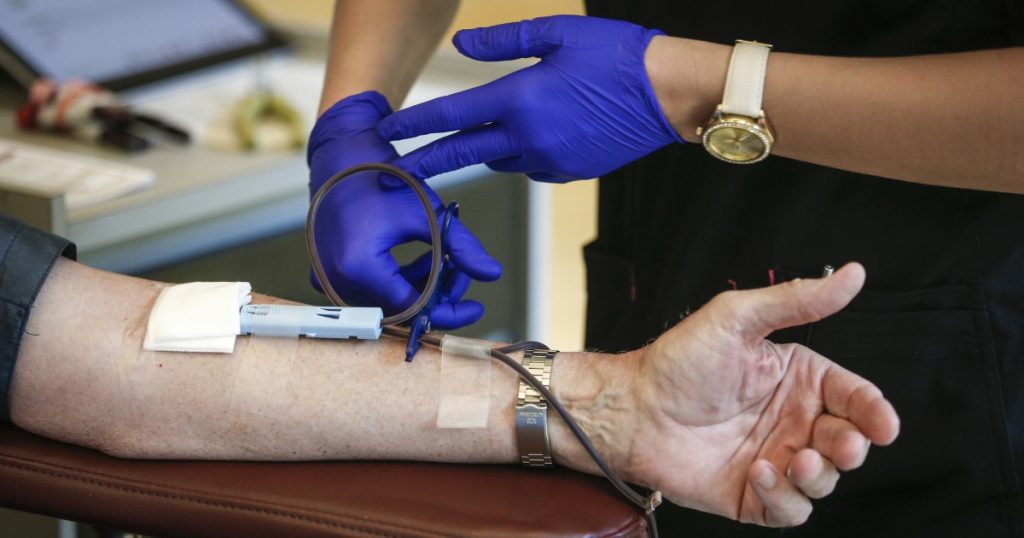The FDA Just Made It Easier for Gay Men to Donate Blood
Andy Abeyta/Quad-City Times/Zuma
Fight disinformation: Sign up for the free Mother Jones Daily newsletter and follow the news that matters.For years, gay and bisexual men have fought back against what they consider to be outdated restrictions on who can give blood. On Friday, the Food and Drug Administration finally issued a new guideline allowing men who are in monogamous relationships with men to give blood.
Men who have sex with men have long faced restrictions on giving blood because they are at higher risk of contracting HIV from sex. In 2014, the FDA loosened its lifetime ban on gay men giving blood, announcing that they could donate—as long as they hadn’t had sex with men in the last 12 months. (According to Stat News, there have been no negative changes to the blood supply.)
In March 2020, my colleague James West was denied the opportunity to donate plasma after recovering from Covid because of his status as a “man who has had sex with a man in the last 12 months.” As he wrote:
The FDA blood bank guidelines are in place to reduce the risk of HIV transmissions resulting from blood transfusions, because gay and bisexual men in the US have a higher risk of getting this disease from sex. Until 2015, the FDA enforced a lifetime ban on gay men giving blood. It then decided to allow those who haven’t had sex in over a year to donate. The agency’s reasoning is that it takes time to detect recent infections of those diseases. But the yearlong window remains a sore point for gay rights. The guidance pays no heed to whether you’re in a monogamous sexual relationship, or Tinder-hopping, while screening for viruses has become much quicker and more precise.
The day after James’ story was published, the FDA shortened the length of time for which men would have to abstain from sex with other men to three months.
Now, the FDA finally recognizes the safety of monogamous gay relationships—a boon for gay rights and the blood supply.





